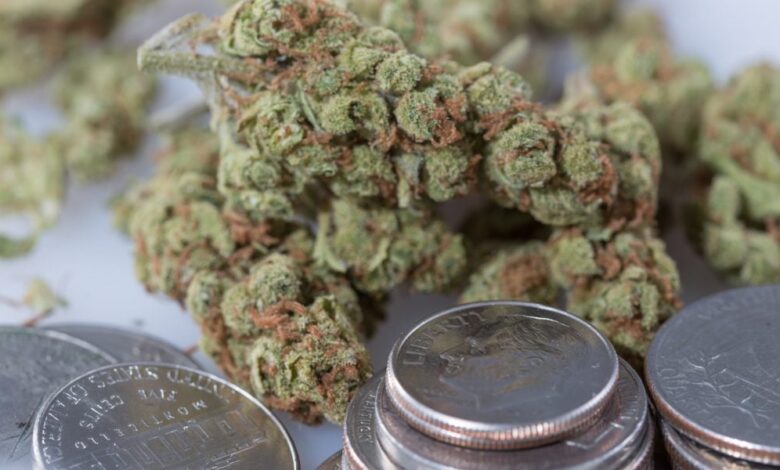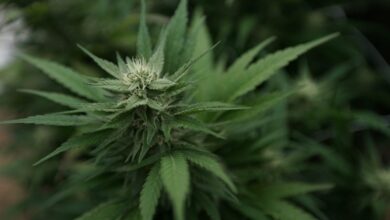Bipartisan Governors In Multiple States Propose Significant Marijuana Tax Increases

Governors in at the least 4 U.S. states are proposing important tax will increase for authorized marijuana merchandise.
In Maine, Maryland, Michigan and Ohio, bipartisan governors are floating tax hikes inside their state hashish packages—a pattern that raises questions on balancing income objectives with the necessity to carry customers into the authorized market.
These aren’t small tax proposals on the desk, both. Right here’s a rundown of the governors’ plans that they hope to see legislatures implement within the 2025 session:
Maine
In Maine, Gov. Janet Mills (D) put ahead a price range request late final month that may enhance the gross sales tax on marijuana by 40 p.c, elevating it from 10 p.c to 14 p.c starting January 1, 2026.
The governor’s workplace estimates that the tax fee change would generate nearly $4.2 million in extra income within the 2026 fiscal 12 months and $11.5 million within the subsequent fiscal 12 months.
Maryland
Beneath Gov. Wes Moore’s (D) price range plan, the tax fee on marijuana would enhance from 9 p.c to fifteen p.c—a 67 p.c hike—beginning in July 2026.
In the meantime, the budget additionally requires a strategic funding of $5 million to transform a vacant armory in Catonsville “into an incubator area for hashish companies.”
In the meantime, final week at his State of the State deal with, Moore touted laws that may broaden alternatives for individuals to have their legal data for marijuana expunged.
Michigan
Michigan Gov. Gretchen Whitmer (D) is searching for to impose a brand new wholesale marijuana tax that may be paid by licensed hashish operators, fairly than customers.
Her workplace mentioned that the intent is to shut a “loophole” that’s exempted the {industry} from such a tax. Nonetheless, whereas the coverage change is projected to herald $470 million in new income—which might go towards highway repairs—the governor didn’t specify what she thinks the precise tax fee ought to be, saying that may be up for negotiation with the legislature.
“After voters legalized marijuana, the {industry} has grown exponentially thanks partly to Michigan’s industry-friendly taxes, the fourth lowest within the nation,” Whitmer’s workplace said in a press launch. “The {industry}, which recorded billions in gross sales in 2024, makes use of Michigan roads to move marijuana a number of occasions all through the method, together with to develop operations, testing labs, distribution hubs and eventually retail shops.”
Ohio
In Ohio, Gov. Mike DeWine (R) is proposing to double the ten p.c tax fee on hashish below the state’s voter-approved legalization legislation to twenty p.c.
The hike would go even additional than a invoice that handed the state Senate in late 2023. That laws, which the governor tentatively supported, known as for a 15 p.c tax on hashish.
Final month, Ohio Republican lawmakers individually revived an effort to considerably alter the state’s voter-approved marijuana legalization legislation—partly by elevating the tax on hashish merchandise to fifteen p.c, halving the variety of vegetation adults may develop and eliminating sure social fairness provisions.
Notably, DeWine—who opposes legalization however pledged to implement the desire of voters that accredited the reform—is proposing a tax fee on hashish that matches what pro-legalization Pennsylvania Gov. Josh Shapiro (D) known as for in his newest price range request. That plan has drawn criticism from legislators who view it as unworkable.
In the meantime, in California, there’s nervousness inside the hashish market over a proposed tax hike that’s anticipated to take impact this summer time, raising the marijuana excise tax by 25 p.c.
Marijuana tax coverage has additionally been a focus of {industry} curiosity on the federal degree, particularly amid the continuing marijuana rescheduling course of.
If hashish is moved to Schedule III of the Managed Substances Act (CSA) as proposed below the Biden administration, it will enable state-licensed marijuana companies to take federal tax deductions they’ve been barred from below an Inner Income Service (IRS) code often known as 280E.
However final week, two GOP senators launched a invoice that may proceed to dam marijuana companies from taking these deductions, even when hashish is in the end rescheduled.




